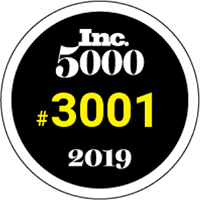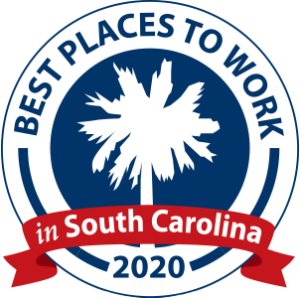A Conversation With Chip Felkel, Founder and CEO of The RAP Index
In our ongoing series about re-personalization, we’re turning the spotlight on organizations that are developing new technology, or using existing technology in new ways, in order to make human interactions more personal instead of the trending de-personalization.
We can’t think of many companies who are more deeply invested in re-personalization, or doing a better job at making human interaction more personal and effective, than our long-time client, the RAP Index.
The RAP Index is a key contacts software service, developed by advocacy experts for advocacy professionals, that uses a patent-pending scoring process to decisively identify and measure the Relationships, Advocability and Political Capital of an organization’s stakeholders. In other words, the software helps large organizations, such as businesses and universities, make good on the RAP Index tagline: Know who you know.
According to Chip Felkel, the creator of the RAP Index, organizations need to know what their network actually is, not what they think it is, in order to fully understand what relationships they have at their disposal. Personal relationships within the organization lead to messages that are more authentic and alive—and, therefore, more effective. Often even more effective than other forms of advocacy, including online petitions and contract lobbyists.
The RAP Index relies on a perfect blend of technology and human engagement to create a powerful tool for leveraging the pre-existing relationships within your organization. We sat down with Chip Felkel to find out more:
The RAP Index is a proprietary software with the stated goal of ‘moving’ people. What does that mean to you? What does it look like?
Quite simply, moving people means getting them to act. The RAP Index fights against click-and-send slactivism. A ‘like’ isn’t activism. Neither is sharing or signing an online petition or sending a form email. Not really. In our space, there’s a tremendous amount of depersonalization—and there has been for a long time. It’s far too easy for corporations to use technology and call it advocacy.
Instead, the RAP Index uses technology matched with common sense…the human component. Our technology makes it easier for people to build on the personal relationships that already exist. The index survey is all about identification and assessment of personal connections and longstanding personal relationships between constituents, advocates, and elected officials in order to leverage those connections.
Organizations go through cycles of being in love with tech to being disillusioned. Getting everyone who works for you to click-and-send a highly impersonal letter—somehow that’s viewed as effective advocacy. And quantity and volume is effective up to a point. It gives a sense of volume around an issue, but it doesn’t create a conversation or dialogue about complicated issues or allow for the human element.
How do corporations usually respond to the idea behind the RAP Index? Is it difficult to get CEOs to see the value?
Once they understand what we can do, if we get the chance to demonstrate the power of the human connections within their organization, they usually fall in love. Since we encourage corporations to cast a wide net, many times we’re identifying relationships that they had no idea existed.
We’re in an environment that is severely lacking authentic messaging and authentic voices. Finding people who have legitimate relationships and motivating them to take action is much more effective and authentic than sharing a form letter. Often, it’s even more effective than paid lobbyists, who do have their place. It’s like the difference between paid reach and organic reach. We’re extending our clients’ organic reach.
Authentic advocacy requires a relationship—and knowing that a legitimate relationship exists is the first step. Relational advocacy is exponentially more effective than click-and-send slactivism, and the opportunity is greater. We use big data to make these small connections.
Interacting via software is generally not very personal. How is RAP actually countering that trend, improving human to human interaction, and creating more authentic advocacy?
Our software assesses both the breadth and the depth of the relationships within the organization through an online survey delivered to the stakeholder universe. This survey always comes from someone in the organization they are likely to respond to and has highly personalized messaging.
The information we gather is all self-reported or volunteered. How would you describe the relationship? When was your last contact? Being able to say: “This elected official is my dad’s cousin and he comes by the house a couple times a week” is a lot different than saying: “This elected official goes to my 3,000-member church. I think.”
We also evaluate the advocacy mindset of the stakeholders responding to the survey. Would you be willing to call this person? Write an email? Take him or her to lunch? We not only find out what relationships exist, but how willing members of the organization are to leverage those relationships. We then aggregate the information, weigh the value of the relationship and the potential for effectiveness, hedge the information, score it, and report on it.
In what ways must you take care to bring an engaging experience to those who use the software to encourage advocacy?
My background is in strategic communications. It’s what I’ve been doing for 30 years, so the RAP Index was a natural fit for me. Every message we deliver is tailored to the organization and always nuanced. We may have a reference to an upcoming congressional fight or a recent fight, for example.
The survey always comes from someone they know, and we let them know a couple of days in advance that it will be coming. The survey is completely branded from their organization and highly interactive, prompting respondents through questions almost like a set-up engine. Respondents are naturally engaged because we’re dealing with issues that affect their industry—potentially impacting their livelihood. That gets a lot of people to respond and act, as you might imagine.
Many of our clients worry about whether or not people within their organization will respond or not, but I always tell them not to. The fact is a lot of people don’t personally know their elected officials, and those who do aren’t always willing to use those relationships. We send an engaging, personal prompt explaining the potential impact of the upcoming legislation. If that doesn’t spark a willingness to respond…you kind of have your answer.
The beauty of this system is that it weeds out people who aren’t going to take action automatically. An organization can learn a lot about the advocacy mindset of their people based on who responds. If we message in the right way, then the right people will respond—their best messengers will respond—and the filtering process begins immediately.
What technology trends have the biggest possibility to enhance RAP’s goal of moving people?
I think quality dashboarding and data visualizations have the most potential. We’ve recently released a new dashboard feature that allows clients to go into the software and instantly see how many relationships they have, who those relationships are with, and what the RAP score is for any member of their organization. It’s all sortable depending on what data they need, putting their best advocates at their fingertips.
The dashboard also includes an interactive map showing where the organization is weak and where it’s strong, giving an easily digestible snapshot of their sphere of influence and immediate feedback about where they need to focus their efforts and develop new inroads.
Essentially, our system takes historical data that may have at one time existed in an Excel spreadsheet or in someone’s head who may or may not still be in the organization and makes it quantifiable and actionable. There has never before been a way to go out, capture this data, grow it organically, and then leverage it. By its very nature, relational data is hard to get your arms around and maintain, so I see the RAP Index as the perfect use of technology. We’ve created a platform for this type of data, and anything we can do to make that platform easier and more intuitive will drive engagement.
What are some interesting or surprising things that you have learned about our relationships with others?
That they remain very powerful, perhaps the most powerful thing, despite the important and sometimes overwhelming impact of technology on our lives. Relationships still matter a whole lot, and we’d be remiss to forget that. I’ve personally seen instance after instance where relationships played a major role in achieving the outcome we wanted.
Intuitively, we know this, but we often have difficulty leveraging relationships on a larger scale. In day to day life—who hasn’t leveraged a relationship? What we’re doing is taking technology and making it easier to do what we think is beneficial not only for organizations but for the whole policy debate.
A lot of the relationships we identify have nothing to do with policy. They’re personal. Ongoing personal interaction is powerful, making the message that much more meaningful and effective. A lot of people spend hours and hours trying to find the right people to deliver an effective message. Part of what we do is we cut down on the time it takes to find the right people who have the relationship and are willing to act.
What’s next for The Felkel Group and The RAP Index?
We’ve been in the public policy space for a long time, and now we’re looking at the possibility of taking our platform and applying it to a business development angle. Instead of matching relationships with elected officials, we’d match relationships with other decision-makers for business development. We’re looking at a couple packages we can offer for smaller organizations that could use our tools and data—looking at ways to make our software affordable for smaller groups that don’t have the budget of a large, multinational corporation.


